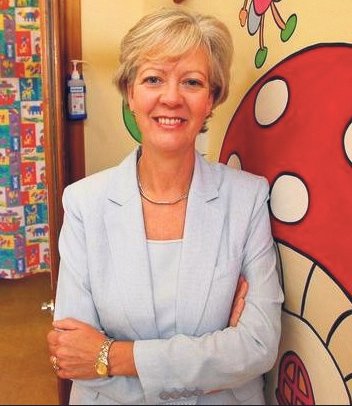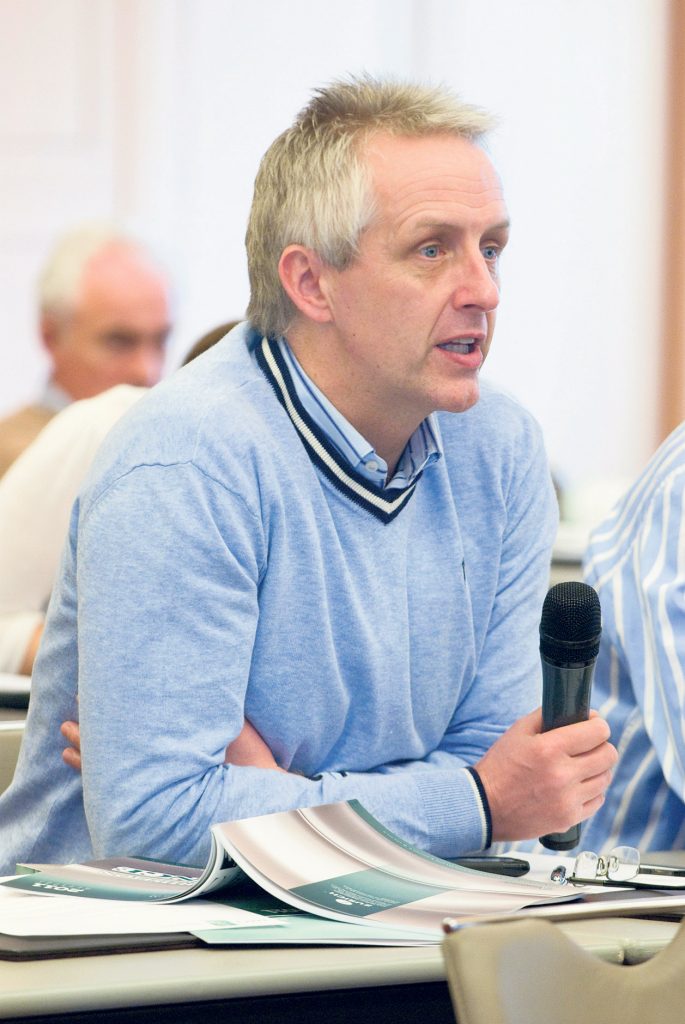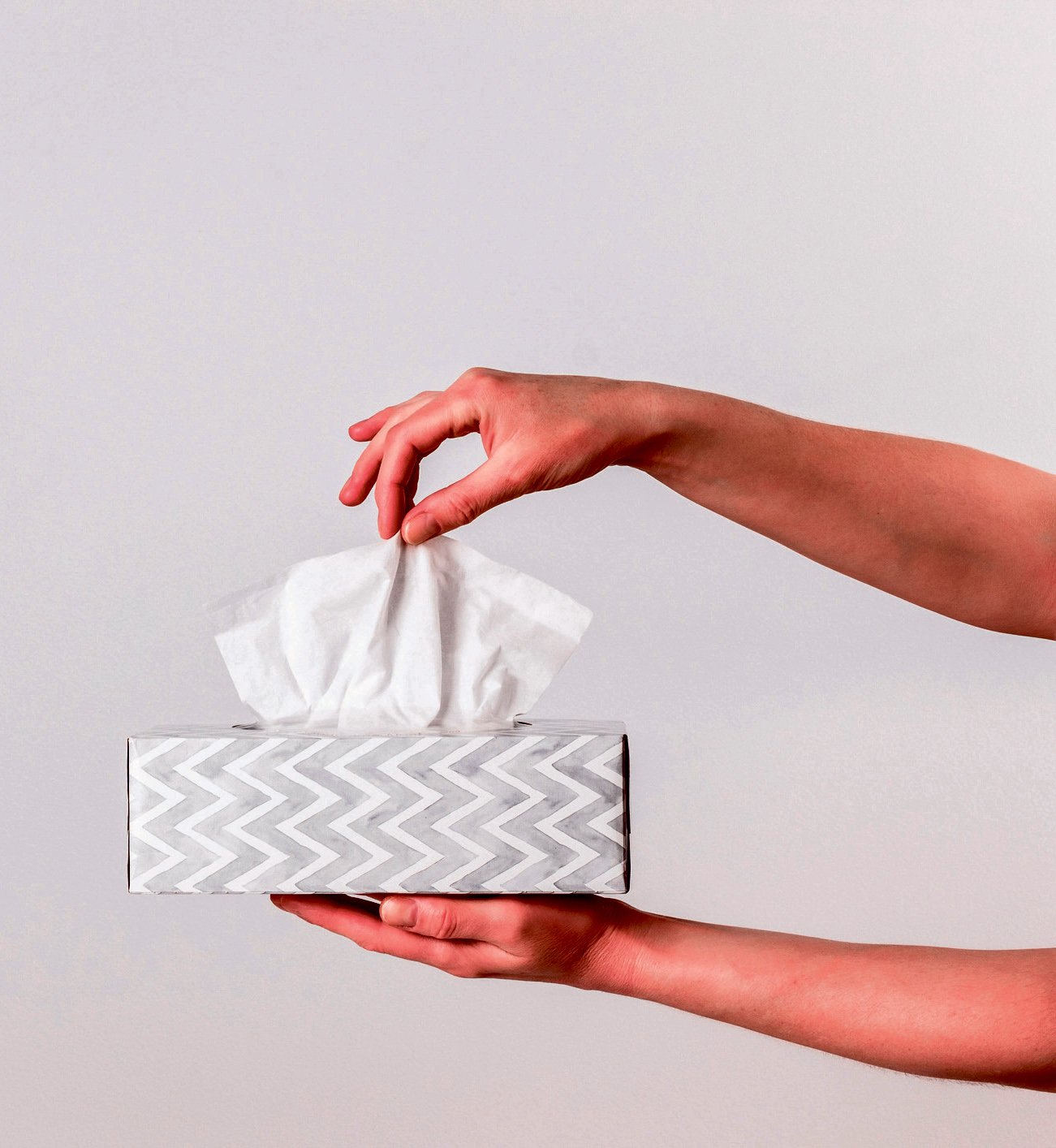With an unprecedented focus on the novel coronavirus, another
better-known viral threat will represent a major test later
this year. Catherine Reilly reports
Over 4,300 hospitalisations, 152 people admitted to intensive care, and 103 deaths.
Influenza’s burden on health and healthcare is evident in these 2019/2020 season statistics.
The influenza virus causes annual epidemics which range in severity. The Health Protection Surveillance Centre (HPSC) has estimated that up to 1,000 people in Ireland could die during a particularly severe flu season.
The Covid-19 ‘new normal’ means that preparing for the next flu season is critical. If significant transmission of SARS-CoV-2 confluences with a demanding flu season, the health system will face a bigger crisis than what was feared this spring.
Tackling ‘poor’ but improving vaccine uptake in healthcare workers will be part of the battle (see panel).
Minister for Health Simon Harris has announced his intention to extend the influenza vaccine programme to children without charge. Minister Harris confirmed those in the HSE-defined at-risk groups, aged from six months to 69 years inclusive, will also be able to access the vaccine without charge. The vaccination will be available to all children aged from two-to-12 years inclusive.
Currently, the flu vaccine is free for people in an at-risk group but they may be charged a consultation fee unless they have a medical card or a GP visit card.
“Planning for the 2020/2021 influenza season is underway, including plans to maximise uptake of the vaccine, based on available evidence,” according to a HSE spokesperson. “The contract for seasonal influenza vaccine includes access to additional doses if required, and updates of production. The contract is constantly monitored from the time of it being awarded.”
A quadrivalent vaccine was introduced in 2019.
Prof Karina Butler, Chair of the national immunisation advisory committee (NIAC), RCPI, told the Medical Independent (MI) it would “be great to ensure” there are no access barriers for those in the recommended groups, “so free access would be great.”

“And absolutely, I would be strongly in favour of the flu vaccine for children if that is feasible or practical — I am just thinking of the time constraints… we do know if you prevent flu in children, you reduce it not only in the children, but you reduce it in the adults in the community as well,” said Prof Butler, a Consultant Paediatrician and Specialist in Infectious Diseases.
“Certainly, heading into the next viral season where we will be dealing with the likely presence of SARS-CoV-2 in our community, together with other respiratory viruses, it would be advantageous if we were able to minimise the amount of flu that was circulating at the same time.”
Outside of recommended groups, immunisation guidelines state “anyone (aged six months and older) who wishes to reduce their risk of infection may choose to have the seasonal influenza vaccine”.
Similar symptoms
Symptoms of flu — fever, headache, myalgia, cough, sore throat and malaise — are also found in Covid-19 infection. This will present difficulties for healthcare services and broader society, particularly around the specific self-isolation requirements for suspected and confirmed Covid-19 infection, and the anxiety generated by a potential diagnosis.
Co Donegal GP and IMO GP committee chair Dr Denis McCauley recalled that a few weeks before Covid-19 was identified in Ireland, a local school had 150 children with temperatures.
“It was influenza B. Thankfully, Covid hadn’t been established and the fear of God hadn’t been put into people… I dread to think if that had come three weeks later, everyone would have been up to high doh,” he said.
In ordinary times, there is a “good empirical argument” for extending the flu vaccine to all children, said Dr McCauley. As well as protection for the cohort, indirect benefits are argued in terms of reducing the risk to vulnerable groups, such as older people.
In the present context, it is a ‘no-brainer’. “The economic and psychological benefits that would bring this season are without doubt.”
“If you have another illness other than Covid descending on us, giving us temperatures and causing confusion, it will only lead to huge psychological impacts and it will lead unfortunately to huge economic impacts also,” said Dr McCauley.

“We just want to minimise infectious diseases in the winter as much as practicable, by keeping our social distancing, keeping washing of hands, making sure vaccinations are as widespread as is possible, because the really funny thing is, we don’t have any childhood illnesses at the minute, because people are self isolating…
“[The Covid crisis] also brings into light that vaccination is so important for a whole lot of other things. The recent measles outbreak has been controlled by social distancing; if we don’t get our MMR usage up again, that will re-emerge, which will cause another level of anxiety. So vaccination, vaccination, vaccination.”
Irish Pharmacy Union (IPU) Vice-President and community pharmacist Mr Eoghan Hanly believes there must be an “ambitious” approach in terms of flu vaccine coverage.
“We are quite good at vaccination in Ireland; we got 1.1 million people vaccinated last season. But we still had over 4,000 hospital admissions last flu season, so we need to try and avoid that, and can avoid it by a good flu vaccination regimen. We are good, and have been very good, at targeting the at-risk category, but we need to do better.”
To achieve so-called herd immunity, “we need to vaccinate 75 per cent of the population, so we need to be doing three million vaccines, three times more than we are doing at the moment. And that is across the board, that is not just the vulnerable people, we need to vaccinate the people around them to give them protection — particularly healthcare workers.”
To increase uptake, “we are encouraging the Government to provide the vaccine for free to everyone”.
Increased demand for the flu vaccine is likely, including by means of an extension to the flu vaccination programme.
Who will provide for this extension? This is where the IMO and IPU representatives have some differing perspectives.
The proposed childhood extension should be done “in an organised and planned way”, said Dr McCauley. “Who is best to do that? I would propose general practitioners are, but naturally that would be in consultation with the Government.”
In terms of the first year of childhood coverage, Dr McCauley believes one profession should undertake this exercise.
“If I was a mother and I went into a pharmacy, and the pharmacy had to explain the relative ins-and-outs on safety to my child or I went in to my GP, who would I prefer even to initiate the pattern of delivery? It could always be picked up by other people later on, that is what I would argue… if the flu vaccine came in via pharmacists on their own initially, I wonder if the uptake would have been as good.”
Dr McCauley said GPs have encouraged growing uptake of the flu vaccine over the years by “good explanation and good encouragement”.
Fees
Asked about fees for GP provision of an extended service, Dr McCauley said this would not be negotiated via a newspaper article. “If it is planned and the resources are there, it will be done. If it is not planned, and the resources are not there, it will not be done properly, it is as simple as that. We are waiting to help…. we are doing it because we think it’s a good idea.
“Naturally, there will have to be a resource to that, but we are here to help, as we have shown in the Covid crisis. There have been a lot of people who have stood up in the Covid crisis, and general practitioners have been one of them.”
Mr Hanly of the IPU said: “Currently, the fee is low as it is, so I wouldn’t like to speculate on taking a lower fee. As it is, it is a service that doesn’t really pay for itself, either with the GPs, from what they have put out in the public domain, or for pharmacists.”
He said pharmacies are well positioned to deliver increased flu vaccination, given their “accessibility”.
“We have over 1,000 pharmacies offering vaccination, and we have one-and-a-half million visits to pharmacies every week. We are probably the most accessible healthcare professional in Ireland and we are there to help and there to vaccinate.”
The IPU also wants legislative change to allow pharmacists to administer the flu vaccine outside the pharmacy premises.

“I have colleagues who have contacted me where local business operators…[have invited] them into workplaces to vaccinate staff, showing great initiative,” said Mr Hanly. “But unfortunately, under the current legislation we aren’t allowed leave the premises, we must administer the vaccine in the premises.”
Mr Hanly said there are private nursing homes where the GP, through time commitments, etc, may not be able to attend to vaccinate residents.
“So we are just filling a gap. It is not that we are taking business away from GPs; we are just filling a gap. It is not a competitive process, it is a collegiate process.”
Anti-vaxxers
There is hope among healthcare professionals that Covid-19 will act as a powerful reminder of the importance of vaccination and a counter-point to anti-vaccination sentiments that have gained some traction.
Dr McCauley said GPs have worked assiduously over many years in reassuring patients and parents about the safety of vaccinations, such as the MMR. He takes a dim view of those who purposely seek to cause anxiety in others around vaccination.
“I think unfortunately, with social media, little empires are being built on being provocative… but I think those are just the ‘Dettol-swigging idiots’ — not the people who are worried, but the people who are promoting the worry. All they want to hear is one voice, they don’t want to hear an argument, and we just call them out. I am quite happy to say we have no truck with them, they are a negative influence causing anxiety and worsening the health of the general population.”
The flu vaccine specifically is less the focus of sceptical views, according to Mr Hanly at the IPU, probably because it is quite familiar to people.
“What you would see is… ‘I got that and it gave me the flu’, that is the most common anti-vaccination sentiment towards the flu vaccine that I would see. But that is very easily dealt with. You need to explain to them that you cannot get the flu from it. What they were experiencing was probably an immune response to the vaccine…you can explain to them the flu vaccine is not a live one, you are not injecting flu into yourself.”
He acknowledged that the flu vaccine is about 60 per cent effective, depending on the strain picked up.
“But even if you are unlucky enough to be vaccinated and catch the flu, you are more likely to have milder symptoms, and also there are studies showing that there is accumulative effect — so if you have had the flu vaccine for the last decade, and you do unfortunately get the flu, it is going to be much, much milder, your immune system is used to the influenza virus, it has been programmed to deal with it, it is ready for it.”
Prof Butler also hopes an upside of the pandemic may be that people have “cause to reflect and realise what it is like when we don’t have the option of a vaccine to interrupt the spread of disease”.
“Every year, lots of cases of flu and lots of illness and ICU admissions, and mortality, are prevented because of the flu vaccine,” she said.
“Flu vaccine is extremely safe. I get it every year, my adult children now get it every year and when they were small, if it was available for them, I would have done it then. I am delighted my grandchildren have access… they are living in the UK and it is part of the national programme; they have the intranasal live attenuated vaccine.
“I am always glad to see them get it and I am hopeful that will be something that will come on-stream here in the future, whether it is the near future or a little bit further I am not sure, but it will be certainly something we would welcome.”
Differing views on mandatory vaccination
Mandatory vaccination “hasn’t really got a great history” and “can often alienate people”, according to Prof Karina Butler, Chair of the national immunisation advisory committee (NIAC), RCPI, responding to a question on mandatory flu vaccine for healthcare workers.
Prof Butler said making one vaccine mandatory could result in other vaccinations being viewed as less important.
“It is not the panacea,” she told MI. “There may be situations where you end up having to consider it. But I think we would much prefer to work towards a situation where people could be informed enough where they would want to get vaccinated and make an informed decision, and participate at that level rather than mandatory.”
She said there could be a very strong recommendation and a requirement to provide a justification as to why it had been declined. “But I would hope we don’t have to make it mandatory.”
Comparisons between healthcare institutions are a good means of encouraging uptake, she believes. Efforts to make vaccination more accessible for busy staff are also making an impact.
“When you look at the reasons people don’t get vaccines, it really comes to the three Cs: The confidence in the vaccine; the complacency — some people just don’t feel they need it — but there is also the convenience factor.
“I think there’s been a lot of work done on that convenience factor, certainly in the healthcare arena, where now there is a lot of peer-to-peer vaccination, the vaccinators come out to the wards, it is made easily available, going to get your coffee break, sometimes the vaccinator is there — ‘would you like your vaccine?’
“And by making it something that is very easy to do, you increase your uptake. Those are the things that can work; it is not giving somebody a prize for doing it, it is taking away the barriers.”
Currently, the national immunisation guidelines say all healthcare workers “must be offered seasonal influenza vaccination annually”.
A cross-faculty position paper from the RCPI in October 2018 took a much stronger view, however.
It advocated mandatory seasonal influenza vaccination as an important patient safety measure for certain categories of healthcare workers and in certain healthcare settings.
According to the paper, led by the Faculty of Occupational Medicine along with the Faculties of Pathology and Public Health Medicine, all healthcare workers employed in ‘high-risk’ clinical areas — ie, intensive care, haematology/oncology wards, and other areas attended by immunocompromised patients — must receive flu vaccination or sign a declination form. This also applied to those working in emergency departments due to case mix and frequent overcrowding.
All healthcare workers employed either in hospitals or in the community with older patients, infants or pregnant women must receive the flu vaccination or sign a declination form.
Healthcare workers who refuse vaccination must sign a declination form. They must also understand that they may be allocated, for the duration of the influenza season, to a lower risk area.
Healthcare workers without a medical contraindication to influenza vaccination, who decline vaccination, should wear a mask for the duration of the influenza season whilst undertaking clinical tasks and/or directly interacting with patients. Those with a medical contraindication should provide evidence of same, and may decline vaccination but may be moved to a low-risk or non-clinical area for the period of the flu season and may be required to wear a mask.
Serological studies showed that influenza infection occurred in 19 per cent of healthcare workers, with only one-third symptomatic, outlined the paper.
“Mandatory vaccination is the only intervention to date that has been proven to achieve vaccine uptake rates of over 95 per cent.”
The paper also noted that certain categories of healthcare workers (ie, surgeons) were already precluded from undertaking invasive surgical procedures unless they provided evidence of immunity/non-infectivity to blood-borne viruses (ie, hepatitis B and C).
“This is an existing contractual requirement which has been introduced to mitigate a risk which is of much lower frequency than the risk posed by HCWs infected with influenza.”
HPSC materials describe uptake of the flu vaccine by healthcare workers as “poor” but improving. The target for the 2018/2019 season was 65 per cent. In hospital-based healthcare workers, uptake was 53 per cent (medical/dental staff at 72 per cent; nursing at 50 per cent; management and admin at 48 per cent) and 42 per cent for staff in public long-term care facilities (long-term residents’ uptake was 89 per cent).
In the Hospital Groups, the highest healthcare worker uptake was in Children’s Health Ireland (CHI), at 67 per cent. CHI’s final data for 2019/2020 was not available, but as of early December, it was around 71 per cent.
A CHI spokesperson referred to flu champions across all sites as contributing to uptake.
“We focused on sharing a series of messages for staff, including dispelling flu misperception/myth, provided education of risks for healthcare workers, and feedback on the success of previous campaigns,” they added. “We had promotional materials, lanyards, pens, stickers with campaign logo (InFLUential). Each site displayed a percentage barometer which provided updates on flu vaccine update, which were shared back to wards and departments.”
Culture and values were incorporated into the campaign, emphasising that the hospitals treat children with life-threatening conditions, and it is vital to protect them and their families, and healthcare workers and their families.
The Hospital Group with the poorest uptake in 2018/2019 was Saolta University Health Care Group at 39 per cent, as per HPSC data.
“For the 2019/2020 flu season, we asked nurses, managers and team leaders to champion the flu vaccine to raise awareness of the vaccine and the seriousness of flu among staff.
“The uptake rate up until mid-February was 45.8 per cent, up from 40.5 per cent, which was the total uptake rate for the 2018/2019 season,” said Saolta’s spokesperson.
They said “strenuous efforts” would continue in order to improve uptake.
The target for 2020/2021 is 75 per cent.
A HSE spokesperson said uptake rates from previous influenza seasons are reviewed each year.
They said a number of initiatives are in place to improve uptake across healthcare. “These include the establishment of flu planning committees with the identification of local flu champions, training and roll-out of peer-vaccinators, campaigns on mainstream and social media, and last year for the first time, the establishment of awards for the most improved and best-performing facilities.”













Leave a Reply
You must be logged in to post a comment.